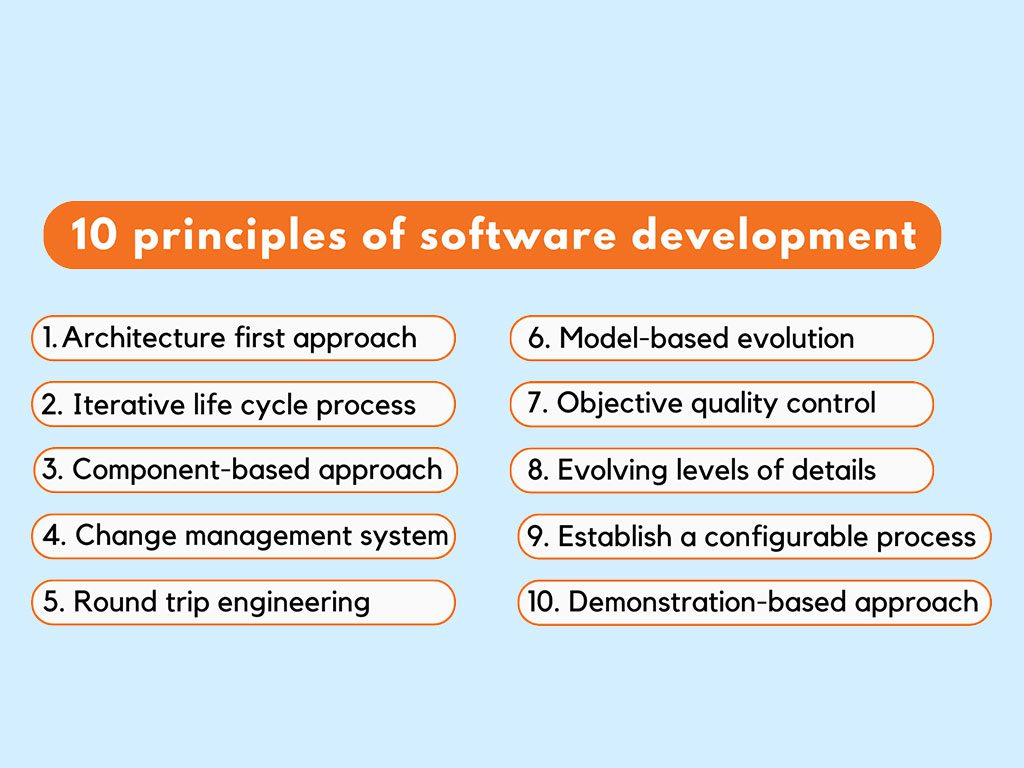10 Essential Software Development Best Practices to Master in 2023
In today’s rapidly evolving tech landscape, software development has become a crucial aspect of businesses across industries. As software becomes an integral part of our daily lives, it is essential to ensure that the code we write is of the highest quality. This is where software development best practices come into play. By following these practices, developers can enhance the reliability, efficiency, and maintainability of their code. In this article, we will explore 10 essential software development best practices that every developer should master in 2023.
The Importance of Software Development Best Practices
Software development best practices are a set of guidelines and principles that help developers write code that is efficient, maintainable, and scalable. These practices have emerged as a result of decades of experience and learning from the software engineering community. By adhering to these best practices, developers can avoid common pitfalls, reduce technical debt, and deliver high-quality software products.
Agile Software Development Methodology
Agile software development methodology has gained significant popularity in recent years. It emphasizes iterative development, collaboration, and flexibility. The Agile methodology breaks down the development process into smaller, manageable cycles called sprints. Each sprint focuses on delivering a working piece of software that fulfills a specific set of requirements. By following the Agile methodology, developers can respond quickly to changing requirements, improve team collaboration, and deliver value to customers at a faster pace.
Test-Driven Development (TDD)
Test-driven development (TDD) is a software development practice that emphasizes writing automated tests before writing the actual code. With TDD, developers write a failing test case first, then write the code necessary to pass the test. This approach ensures that the code meets the desired functionality and prevents regression bugs. TDD promotes a more robust and reliable codebase by encouraging developers to think about the requirements and edge cases upfront.
Continuous Integration and Continuous Delivery (CI/CD)
Continuous Integration (CI) and Continuous Delivery (CD) are practices that focus on automating the process of building, testing, and deploying software. With CI/CD, developers can integrate their code changes into a shared repository regularly. This allows for early detection of integration issues and promotes better collaboration among team members. Additionally, CD automates the deployment process, ensuring that software updates are delivered to users quickly and reliably.
Code Review and Version Control
Code review and version control are essential practices for maintaining code quality and collaboration within development teams. Code reviews involve having other developers review your code for bugs, readability, and adherence to best practices. This process helps catch potential issues early and ensures that the codebase remains consistent and maintainable. Version control systems, such as Git, enable developers to track changes to their code, collaborate effectively, and roll back to previous versions if necessary.
Documentation and Code Comments
Clear and concise documentation is crucial for understanding and maintaining software projects. By documenting code functionality, APIs, and design decisions, developers can make it easier for themselves and others to understand and work with the codebase. Additionally, code comments provide insights into the logic and purpose of specific code sections. Well-documented code and meaningful comments contribute to better collaboration, maintainability, and knowledge transfer within development teams.
Security Practices in Software Development
Security is a critical aspect of software development, given the increasing number of cyber threats. By integrating security practices into the development process, developers can protect sensitive data, prevent unauthorized access, and mitigate security risks. This includes practices such as input validation, encryption, secure coding guidelines, and regular security audits. Prioritizing security from the early stages of development helps build robust and secure software systems.
Performance Optimization Techniques
Optimizing software performance is essential to ensure that applications run efficiently and deliver a seamless user experience. Performance optimization techniques involve identifying and addressing bottlenecks, reducing resource usage, and improving response times. Techniques like caching, code profiling, and database optimization can significantly enhance the speed and efficiency of software applications. By mastering performance optimization techniques, developers can create high-performing software that meets user expectations.
Usability and User Experience Considerations
The usability and user experience of software play a vital role in its success. Developers should consider the needs and preferences of end-users throughout the development process. This includes conducting user research, creating intuitive user interfaces, and providing clear and helpful error messages. By prioritizing usability and user experience, developers can create software that is user-friendly, intuitive, and enjoyable to use.
Keeping Up with Industry Trends and Advancements
The field of software development is constantly evolving, with new technologies, frameworks, and tools emerging regularly. To stay relevant and deliver high-quality software, developers should keep up with industry trends and advancements. This involves continuous learning, attending conferences, participating in online communities, and exploring new technologies. By staying updated, developers can leverage the latest tools and techniques to build innovative and efficient software solutions.
Conclusion
Mastering software development best practices is essential for developers striving to excel in their craft. By following the 10 essential practices outlined in this article, developers can enhance the quality, reliability, and efficiency of their code. Whether it’s adopting Agile methodologies, practicing TDD, or prioritizing security and performance optimization, these best practices empower developers to deliver exceptional software in the ever-evolving tech landscape of 2023.
CTA: Stay ahead of the curve and become a software development expert by implementing these essential best practices in your code today.








Hairstyles
October 13, 2024Your articles are extremely helpful to me. Please provide more information!
Hairstyles VIP
October 14, 2024Your articles are extremely helpful to me. Please provide more information!
Beauty Fashion
October 15, 2024Great beat ! I would like to apprentice while you amend your web site, how could i subscribe for a blog site? The account helped me a acceptable deal. I had been a little bit acquainted of this your broadcast provided bright clear concept
Travel
October 18, 2024Thanks for posting. I really enjoyed reading it, especially because it addressed my problem. It helped me a lot and I hope it will help others too.
Beauty Fashion
October 19, 2024I enjoyed reading your piece and it provided me with a lot of value.
Health
October 23, 2024Thank you for writing this article. I appreciate the subject too.
Beauty Fashion
November 1, 2024Thank you for providing me with these article examples. May I ask you a question?
Hairstyles
November 1, 2024Please tell me more about your excellent articles
Mens Hairstyles
November 3, 2024You’ve been great to me. Thank you!
Beauty Fashion
November 5, 2024I want to thank you for your assistance and this post. It’s been great.
Beauty Fashion
November 8, 2024Please tell me more about your excellent articles
Travel
November 10, 2024I’m so in love with this. You did a great job!!
Hairstyles Color
November 13, 2024Your articles are extremely helpful to me. Please provide more information!
Travel
November 14, 2024You helped me a lot with this post. I love the subject and I hope you continue to write excellent articles like this.
Medium Hairstyles
November 14, 2024Your articles are extremely helpful to me. Please provide more information!
Hairstyles
December 3, 2024Thanks for your own effort on this website. Kim takes pleasure in participating in investigations and it’s easy to see why. We all learn all of the lively method you make precious ideas via your blog and even foster response from others on that concept so our favorite daughter is without question becoming educated a whole lot. Take pleasure in the rest of the new year. You’re the one performing a tremendous job.
Beauty Fashion
December 4, 2024Thanks for the tips shared on your own blog. Yet another thing I would like to mention is that weight loss is not information on going on a dietary fad and trying to lose as much weight that you can in a few months. The most effective way to lose weight is by taking it slowly and gradually and following some basic tips which can provide help to make the most from a attempt to drop some weight. You may realize and already be following most of these tips, but reinforcing knowledge never affects.
Hairstyles
December 9, 2024I learned more something totally new on this weight loss issue. One particular issue is that good nutrition is highly vital if dieting. A huge reduction in fast foods, sugary ingredients, fried foods, sweet foods, pork, and bright flour products could be necessary. Possessing wastes harmful bacteria, and poisons may prevent ambitions for shedding fat. While specific drugs for the short term solve the challenge, the horrible side effects aren’t worth it, plus they never present more than a momentary solution. This is a known incontrovertible fact that 95 of diet plans fail. Many thanks sharing your notions on this website.
Black Hairstyles
December 25, 2024Excellent post. I was checking constantly this blog and I am impressed! Very helpful info specially the last part 🙂 I care for such information much. I was looking for this certain information for a long time. Thank you and good luck.